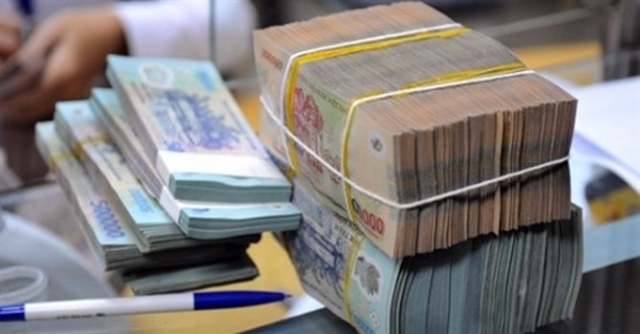The issuance of Treasury bills (T-bills) is a part of the central bank's ongoing effort to manage surplus capital within the banking system.

The State Bank of Vietnam (SBV) continues its strategy of issuing Treasury bills (T-bills) as part of its ongoing effort to manage surplus capital within the banking system.
On Wednesday, the SBV offered 28-day treasury bills worth VNĐ20 trillion (US$833 million) through an auction.
As a result, nine out of 12 participants won the bid at an interest rate of 0.65 per cent, higher than the 0.58 per cent on the previous day and 0.49 per cent in the beginning of the week.
Also on September 27, the central bank revealed the outcomes of its latest 28-day T-bills auction, which amounted to VNĐ20 trillion and was conducted through the interest-bidding method. Nine out of 11 participants won the bid, with an interest rate of 0.58 per cent a year.
This means that the central bank withdrew VNĐ20 trillion from the banking system on Tuesday.
It has also successfully auctioned a total of VNĐ30 trillion on 28-day T-bills in three consecutive sessions, which were September 21, 22, and 25, without any transactions on the open market.
Thus, over the last five trading sessions, the SBV has net withdrawn about VNĐ70 trillion from the banking system through the T-bills channel.
T-bills are short-term debt securities with maturities typically ranging from a few days to one year. Issued by the State Treasury of Vietnam, T-bills serve as a means for the Government to raise short-term funds to finance its operations.
According to economic experts, SBV's continuous issuance of T-bills after more than six months of suspension (since March 10, 2023) is aimed at stabilising the USD/VNĐ exchange rate and addressing the issue of excess capital.
The central bank doubling the issuance volume after three exploration sessions with a volume of VNĐ10 trillion per session, while raising the interest rate, also indicates that the SBV will take more aggressive measures to drain the liquidity system.
According to SSI Securities Corporation (SSI), the SBV’s move to reissue T-bills can be seen as a way to adjust the short-term liquidity situation in the system. This is a common activity of central banks and does not mean that the SBV has reversed monetary policy.
The domestic exchange rate has increased sharply following the bullish trend of the DXY index (a measure of the strength of the US dollar against a basket of six major currencies) in the international market.
Commercial banks have reported a 3.3 per cent appreciation of the USD earlier in the month, compared to the same period in the previous year. This has led to the USD being valued at VNĐ24,500-24,600.
Many experts believe that the central bank will withdraw liquidity from the interbank market to reduce exchange rate pressure in the near future, and also continue to carry out policies to lower interest rates and push up credit. — VNS





